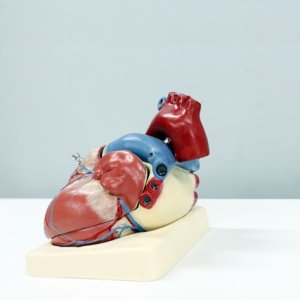
World Brain Day Focuses on Multiple Sclerosis Awareness, Care
 By Miriam Bello | Senior Journalist and Industry Analyst -
Tue, 07/20/2021 - 10:56
By Miriam Bello | Senior Journalist and Industry Analyst -
Tue, 07/20/2021 - 10:56
July 22 celebrates World Brain Day, an event stablished by the World Federation of Neurology in 2014 to increase public awareness and promote advocacy for brain health. 2021’s theme is Multiple Sclerosis (MS) and includes a campaign to raise awareness on this disability, its prevalence, care and early diagnosis.
MS is a potentially disabling disease of the brain and spinal cord caused when a person’s immune system attacks the protective sheath (myelin) that covers nerve fibers, leading to communication problems between the brain and the rest of the body. Miguel Ángel Celis Former Director of the National Institute of Neurology and Neurosurgery Manuel Velasco Suárez (INNN), explained to MBN that multiple sclerosis is the most non-traumatic disabling disease affecting young adults. Eventually, the disease can cause permanent damage or deterioration of the nerves. To date, there are 2.8 million people suffering of MS in the world and 20,000 in Mexico. Women between 20-40 years are the most commonly affected.
The primary or most common symptoms of MS are:
- Numbness or weakness in one or more limbs that typically occurs on one side of the body at a time, or the legs and trunk.
- Electric-shock sensations that occur with certain neck movements, especially bending the neck forward.
- Tremor, lack of coordination or unsteady gait.
- Vision problems are also common, including partial or complete loss of vision, usually in one eye at a time, often with pain during eye movement. Prolonged double vision and blurry vision can occur too.
Due to its chronic condition and its disabling nature, MS tends to have a great impact on the family, social, work and, consequently, economic spheres of those affected. According to Novartis, these are MS most common life-style affectations:
- Decreased quality of life: people with MS have, on average, a lower quality of life compared to those with other chronic diseases such as diabetes and epilepsy and 54 percent of MS patients see their daily activities limited.
- Problems with employment: MS affects the working lives of more than 70 percent of the people who suffer from it. Around 40 percent of patients declare not being active due to symptoms and sequelae of MS.
- Reduced autonomy: about a third of people with multiple sclerosis need a wheelchair within 20 years of the onset of MS.
The disabling nature of MS has led several companies to develop medications that aim to improve a patient’s quality of life, but there are still barriers to their use. “As there is no cure (to MS), many pharmaceutical companies developed many treatments that control the disease, but these medications are highly expensive and public health institutions are facing a challenge in affording them,” said Celis to Mexico Health Review.
To circumvent the problem caused by high costs, pharmaceutical Novartis is exploring alternative payment options. “Novartis is talks with the Mexican government to apply the ‘payment-by-result’ scheme for multiple sclerosis,” said Fernando Cruz, Country President and Head of Corporate Affairs and Communication of Novartis Group Mexico to MBN.
Merck, a company with over 20 years of R&D on MS solutions, is currently introducing personalize medicine for this condition. This treatment is administered for 10 days during the first year of treatment and then for another 10 days during the second year, replacing four years of traditional treatments, Arnaud Coelho, Director General or Merck Group México, told MBN. “This (treatment) substitutes years-long inventories of tablets and injections and it also facilitates the monitoring of the patient. Also, it is safer because it has been tested for years.”
Mexican researchers from Grupo Impulso de Incentivación para Nuevas Tecnologías (GIINT) have also introduced an innovative treatment for this disease. Juan Carlos López, Co-Founder of GIINT, explained to MBN that GIINT has found that dental pulp cells produce neurotropic factors that help progenitor neural cells to produce the oligodendrocytes responsible for myelin. “Thus, a patient that has just been diagnosed with MS can start regenerating myelin, rather than regenerating the dead cells. By regenerating myelin, the alterations caused by MS are diminished,” said López.
While advances are significant, scientists, researchers and doctors have not yet been able to develop a method for preventing MS and there are no specific tests to detect it. Instead, a diagnosis of MS often relies on differential diagnosis.
















